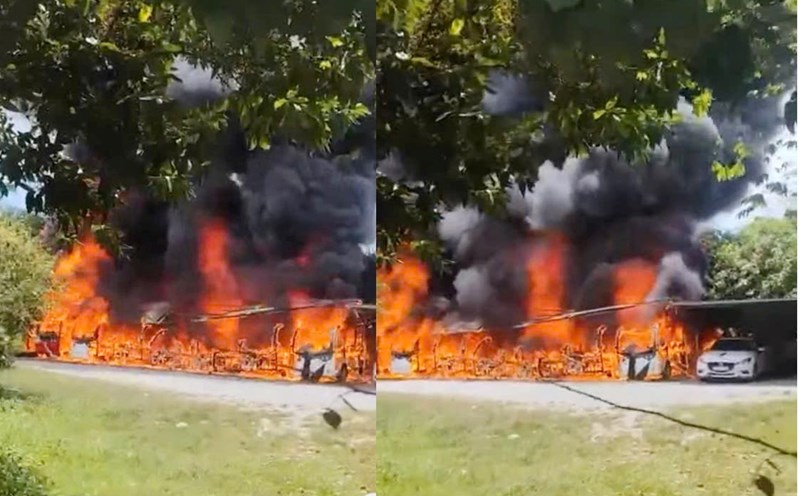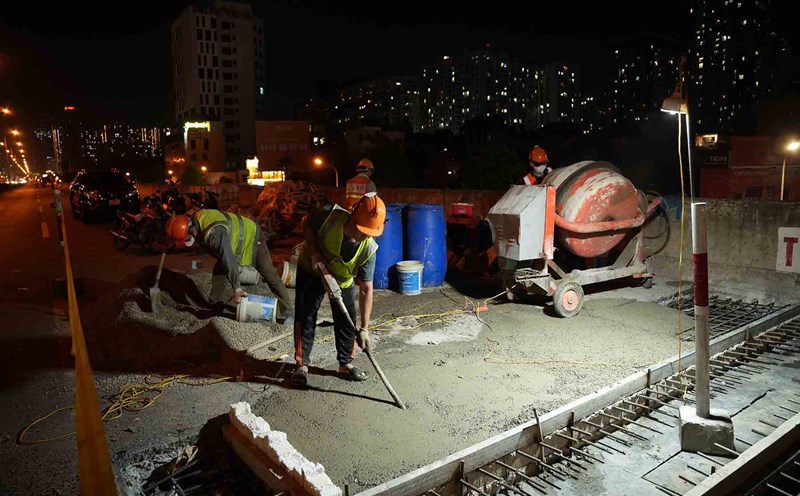PJICO under Mr. Dao Nam Hai and Ms. Nguyen Thi Huong Giang
The information that the Ministry of Public Security prosecuted and temporarily detained Mr. Dao Nam Hai - former General Director of Vietnam National Petroleum Group (Petrolimex) and Ms. Nguyen Thi Huong Giang - former General Director of Petrolimex Insurance Corporation (PJICO, stock code: PGI) is attracting much attention.
Before holding the position of General Director of Petrolimex, Mr. Dao Nam Hai was General Director of PJICO since January 2013. Under the management of Mr. Hai, PJICO's business results have fluctuated a lot. In 2013, after-tax profit reached only nearly 66 billion VND, down 33% compared to the previous year, but then increased sharply over the years, reaching a peak of 352 billion VND in 2021.
In March 2022, Ms. Nguyen Thi Huong Giang succeeded Mr. Hai as General Director of PJICO. However, in 2023, the company recorded a decrease in after-tax profit to nearly 204 billion VND, down 42% compared to the previous year. From 2024, business results began to improve. In the first quarter of 2025 alone, PJICO achieved revenue of VND 1,343 billion, up 3.3%; profit after tax reached VND 71 billion, up 5.1% over the same period.
PJICO's main business lines include motor vehicle insurance, maritime insurance, health insurance, fire/mixed-asset insurance, aviation insurance and technical project insurance.
Among them, motor vehicle insurance is considered by PJICO to be the "backbone" of the business.
Motor vehicle insurance is a key business but the risk of compensation is high
According to the 2024 business results report, PJICO's total revenue reached VND 5,279 billion, up 8.9% and exceeding the plan by 110.7%. This is the first time the company's revenue has exceeded the VND5,000 billion mark.
Notably, motor vehicle insurance continues to be the main business, contributing VND 1,639 billion in revenue, accounting for 37.3% of total principal insurance revenue. Car insurance alone reached VND 1,573 billion, up 6.7% over the previous year; motorbike and motorbike operations reached VND 65.3 billion, up 3.4%. The total cost of compensation retained for the motor vehicle segment in 2024 is VND 891.5 billion, of which cars account for VND 888.8 billion (57.4% of retained revenue), motorbikes - motorbikes account for VND 2.7 billion (4.2%).
Entering 2025, PJICO continues to identify motor vehicle insurance as the main business. In the first quarter of the year, this sector brought in VND 409.5 billion in revenue, accounting for more than 36% of the total principal insurance premium. This is also the segment with the highest retention rate, with more than VND 409 billion, which PJICO is responsible for, not sharing risks through reinsurance.
However, this segment also consumes the most compensation costs. The total compensation for motor vehicles is up to more than VND 213 billion, accounting for 52.8% of the total compensation cost in the period. All of these expenses are paid by PJICO from the retain, not supported by reinsurance companies.
The strategy of retaining all risks of motor vehicle insurance can help optimize profits if losses are well controlled, but also puts businesses under great pressure if the compensation rate increases or major incidents occur.
The problem of balancing cash flow still faces many challenges
As of March 31, 2025, PJICO's total capital reached VND 8,489.9 billion, of which repayment debt accounted for VND 6,622 billion, about 3.5 times higher than equity. The main debt structure is short-term debt (VND6,573.9 billion), with the majority coming from insurance professional reserves such as insurance, compensation and large fluctuations.
In the first quarter of 2025, PJICO recorded a net cash flow of 14.7 billion VND, while in the same period last year, it was a positive 27 billion VND. Cash flow from business activities decreased sharply to 63.9 billion VND. Investment cash flow was negative at VND 21.9 billion, financial cash flow was negative at VND 56.7 billion due to increased principal and dividend payments, although businesses also increased new loans to supplement working capital.
In recent years, PJICO's cash flow has fluctuated strongly in a downward direction, showing increasing pressure from investment activities and financial obligations.
In 2022, pure cash flow from business activities will reach 287.7 billion VND, the highest level in the past three years. However, in 2023, this figure decreased sharply to VND92.3 billion, then recovered to VND207.9 billion in 2024.
The cash flow from investment activities has been continuously negative for all three years, with a negative level from 127.3 billion VND to more than 369 billion VND, mainly due to spending on debt instruments and long-term investment. Financial cash flow also fluctuated significantly: negative 151.1 billion VND in 2022, positive 311.5 billion VND in 2023, and turned negative 132.5 billion VND in 2024 when paying loans and dividends increased sharply.
As a result, net cash flow in 2024 will be only 5.2 billion VND, a sharp decrease compared to 34.7 billion VND in 2023 and 9.2 billion VND in 2022. These figures show that PJICO's cash flow balance problem still faces many challenges.











